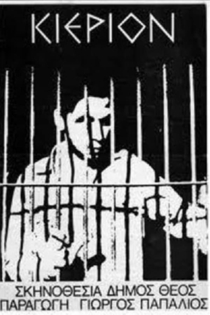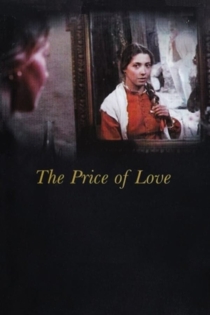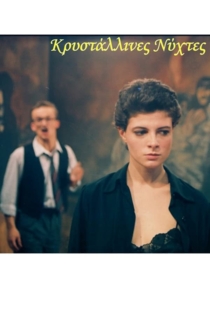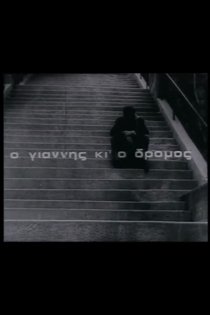
Tonia Marketaki
1942 - 1994She received her formal training at IDHEC in Paris and upon her return to Greece she worked as a film critic in various newspapers from 1963 until 1967. The same year sees the completion of her first short-film creation and subsequent imprisonment by the then recently established Colonels' regime. Upon her release Marketaki fled abroad, working as an assistant editor in the U.K. and a director of educational films for illiterate farmers in Algeria.
In 1971 she again returned to her home-country. Apart from her three full-length films, she also directed a number of theatrical plays and a television series called Lemonodasos.
Her final film Krystallines nyhtes was screened in the Un Certain Regard section at the 1992 Cannes Film Festival. She died suddenly of a heart attack two days before her 52nd birthday.
Ιωάννης ο βίαιος
Tonia Marketaki
Manolis Logiadis, Vangelis Kazan
At midnight, on a deserted Athenian street, a beautiful woman named Eleni Chalkia is fatally stabbed by a stranger, who immediately disappears into the shadows. The murderer is Ioannis Zachos (Manos Logiadis), a young man lacking in both mental and sexual stability, who lives out his erotic fantasies through purifying violence. He often fantasizes about killing beautiful women, in this way compensating for his deficient manhood and satisfying his passion for power. When he is arrested, he immediately confesses his crimes, which is a relief to the police, who have been accused of gross ineptitude by the press. During the trial that follows, the relentless question, “who is ultimately guilty? Man or society?” is again raised.
John the Violent

Κιέριον
Dimos Theos
Anestis Vlahos, Kyriakos Katzourakis
In this political drama, a journalist accused as a conspirator in the murder of an American colleague is released for lack of evidence, and then searches for the true culprits. Inspired by the true events of the murder of American journalist George Polk, this film was shot in 1967 and was banned by the coming military dictatorship in Greece. It had only been shown abroad, until it premiered in 1974 after the dictatorship's fall .
Kierion

The Price of Love
Tonia Marketaki
Anny Loulou, Toula Stathopoulou
The wife of an alcoholic and mother of four (Toula Stathopoulou) is a factory worker in Corfu at the beginning of the 20th century. A fallen noble man who has fallen on hard times (Stratis Tsopanellis) wants to marry her eldest daughter (Anny Loulou) and take advantage of the family's meager earnings. He kidnaps the not-unwilling girl, and argues with her mother about the dowry. But the girl refuses to marry him when she wakes up to the fact that he is only looking out for his own interests. She then decides to start working in order to earn money to raise the child she is expecting. The film is an adaptation of the novel 'For Honor and Money' by Konstantinos Theotokis.
The Price of Love

Κρυστάλλινες νύχτες
Tonia Marketaki
François Delaive, Michele Valley
In this supernatural-themed romance, a German woman in the between-wars period is being initiated into some kind of esoteric/psychic order and learns at that time that her ideal mate won't even be born for quite a few years. By 1936, she has moved to Greece with her Greek husband, and there she meets Alberto, a very young Greek man, a Jew, who is evidently the man she has been seeking. They are able to read each other's thoughts and do so in the midst of a sexual encounter. Despite the boy's attraction to her, he spurns her due to her age (she is forty). She commits suicide and is born almost immediately as someone able to protect her ideal mate from the Germans. Later, as a young woman, she again has a liaison with Alberto, who again spurns her due to their age differences. Flashbacks indicate that this situation has been part of their lives for many incarnations.
Crystal Nights

